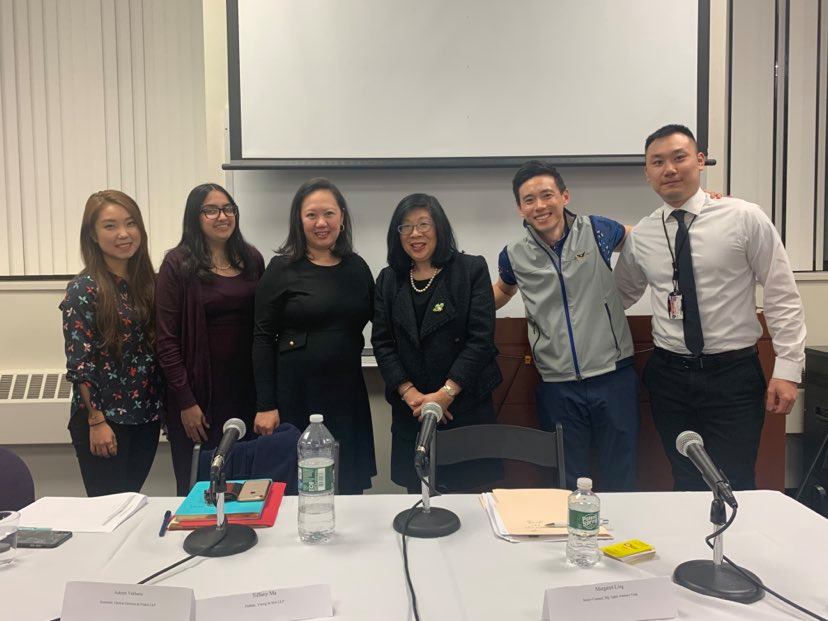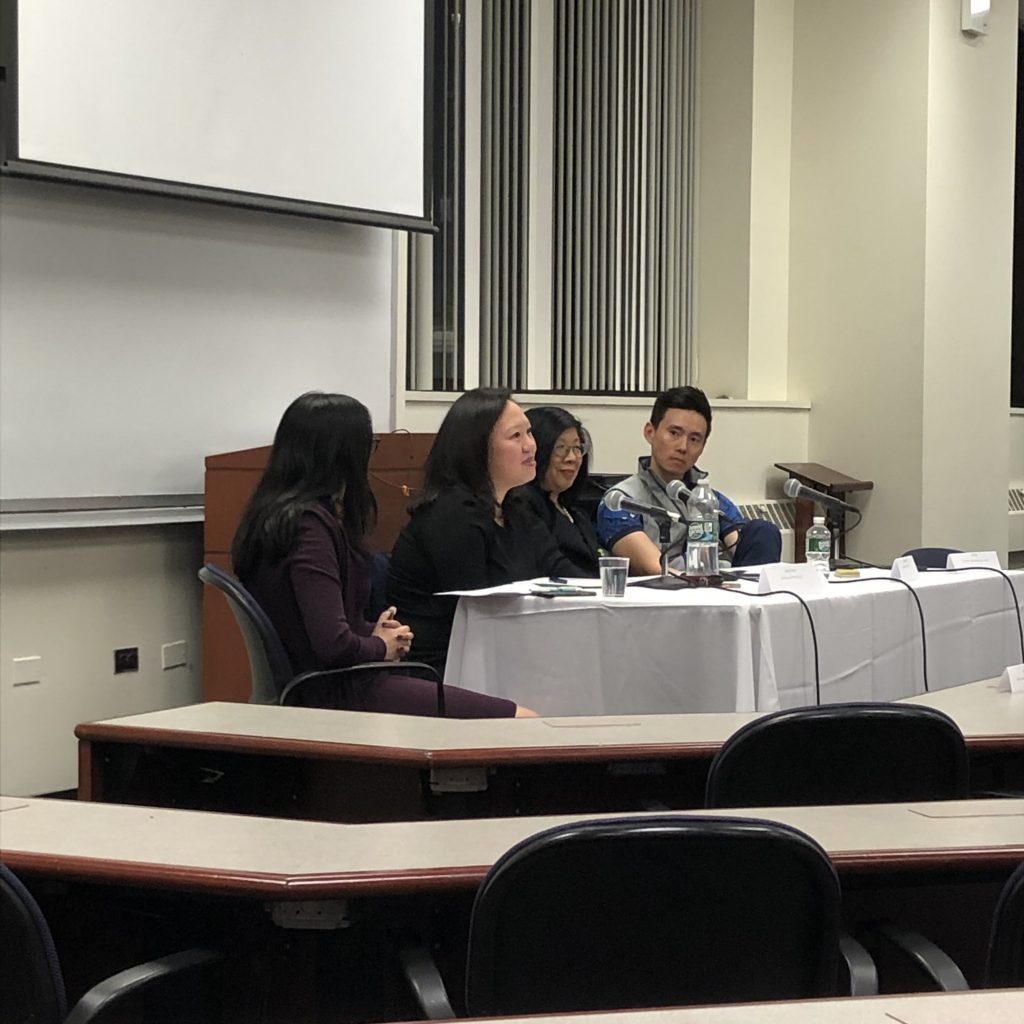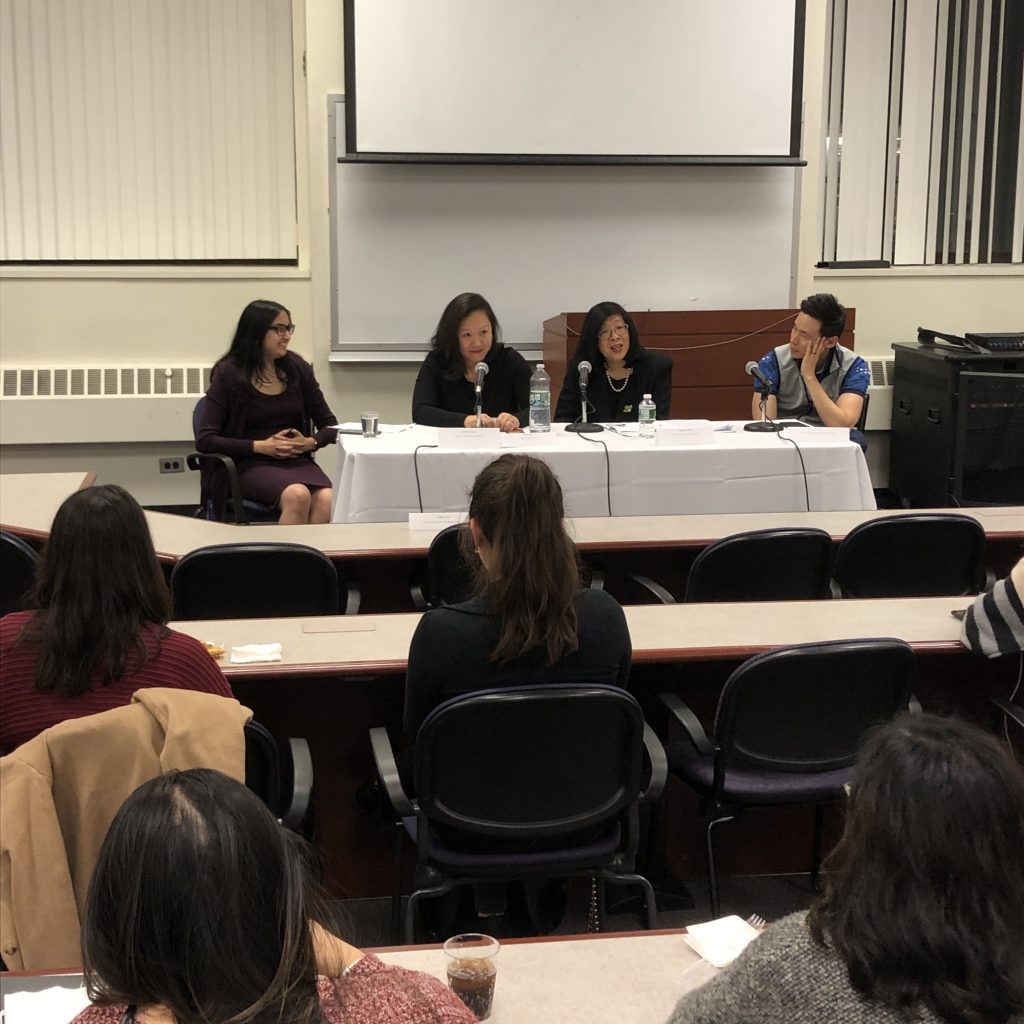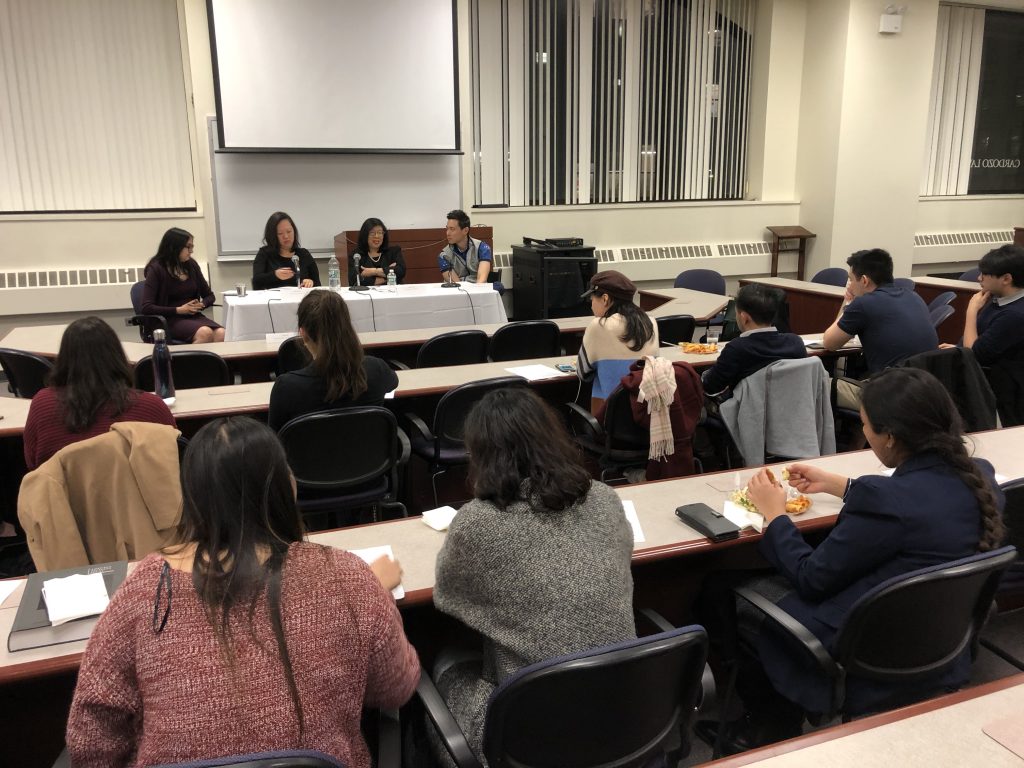On Wednesday, April 29, 2020, the Asian American Bar Association (AABANY) hosted a webinar titled “Anti-Asian Violence and Hate Arising from the COVID-19 Pandemic.” This webinar examined the recent trends and data gathering of Anti-Asian violence incidents, as well as the legal framework of hate crimes under New York and Federal law. The nearly 100 attorneys who attended were given resources to advise the community as to their rights, along with opportunities to volunteer with AABANY.
The panel included Joe Gim, Deputy Bureau Chief, Nassau County District Attorney’s Office; Sheryl Koretz, Associate at Simpson Thacher & Bartlett LLP; Jia Lynn Yang, Deputy National Editor, The New York Times; John Yang, Executive Director, Asian American Advancing Justice (AAJC); and Jo-Ann Yoo, Executive Director of the Asian American Federation. Karen R. King, Counsel at Paul, Weiss, Rifkind, Wharton & Garrison LLP and a Vice Chair on the Pro Bono & Community Service Committee, moderated the panel.
Jo-Ann Yoo, Executive Director of the Asian American Federation, began by sharing some statistics to give some context about the Asian American community both in New York City and in the United States. She highlighted that Asian Americans are the fastest growing population within New York City and across the country, currently composing 60% of the overall population in New York City. Approximately one in four Asian New Yorkers live in poverty, which is the highest of any racial groups in the city. Yoo noted the Asian American Federation’s aggressive media strategy in sharing stories from the Asian American community on different media outlets in hopes of combating the Asian American community’s continued invisibility and marginalization. She noted that a rise in anti-Asian discrimination started when Asian Americans began to wear masks back as early as January, a practice that is not considered strange in Asia due to experiences with previous outbreaks such as SARS in 2002.
Joe Gim, Deputy Bureau Chief, Nassau County District Attorney’s Office, discussed the elements of a hate crime under NY Penal Law § 485.05. Gim explained that § 485.05 elevates the level of punishment that a defendant would receive for a crime that already exists on the books. Among the hate crimes or bias incidents in connection with the pandemic that are the topic of this discussion, there are only a few that would fall under this statute. A second statute that is particularly important to know for community outreach on this issue is aggravated harassment in the second degree under NY Penal Code § 240.30, which deals with verbal or nonverbal threats that fall under misdemeanors or hate crimes.
John Yang, Executive Director of Asian American Advancing Justice, touched on the different channels available to witnesses or victims and the proper actions to take when put in such a situation. A reluctance to report hate crimes has always been an issue for all minority groups. The panelists reinforced the point that bystanders are crucial to these acts of discrimination coming to light. While it may not be safe to directly intervene in these situations, simply calling law enforcement, documenting or recording the crimes, or consoling the victim helps tremendously. Even without knowing the person harassed, as long as someone has proof of the crime being committed, it is possible to prosecute the person responsible entirely by the bystander. There is currently AAAJ/Hollaback bystander training available to help prepare for such situations.
Jia Lynn Yang, Deputy National Editor for The New York Times, explained the thought process and impact of writing her article “Who Belongs in America,” which argues that the fight of Asian Americans for our place in the United States is far from over. Despite the historical struggle for racial equality through US immigration law, there are still those who deny the presence of Asians with legal status in the country. She found that people felt more comfortable with talking about their own experiences of harassment after her article affirmed the severity of these crimes.
Sheryl Koretz, Associate at Simpson Thacher & Bartlett LLP, highlighted the importance of identifying those responsible for the hate crimes, seeking reimbursement for the victims, and spreading the awareness of these cases. In New York, there are newly formed hate crime task forces such as the Asian hate crimes hotline launched by New York Attorney General Letitia James. Victims don’t necessarily need a physical injury to seek compensation. The police have reaffirmed that people reporting hate crimes will never be questioned about immigration status.
Before wrapping up the CLE program, Karen King asked the attendees to consider signing up to be a part of the Community Response Task Force (CRTF), which AABANY uses to communicate with volunteers when there are pressing legal matters affecting the Asian community, including Ant-Asian Violence. Here is the link: https://docs.google.com/forms/d/e/1FAIpQLSdumGO2c9heuQoMifYIWUdZsg3qmimijswUYmOFznXs9ROAww/viewform.
If anyone is interested in bystander intervention training, here is the link to efforts on this front by Hollaback!: https://www.ihollaback.org/bystanderintervention/.
We thank all the panelists for joining us for this timely and vital CLE program, and we thank Karen for organizing it and serving as moderator. Be on the lookout for upcoming community presentations on this topic during APA Heritage Month in May. We hope to be able to count on attorney volunteers to assist victims of anti-Asian violence. If you are interested in volunteering, let us know by filling out the CRTF form using the link above.
The video of the webinar is embedded in this blog post and you can view it by clicking on the image above.





